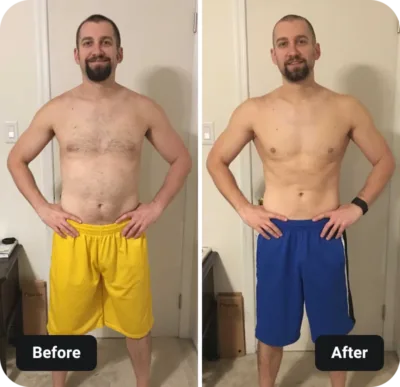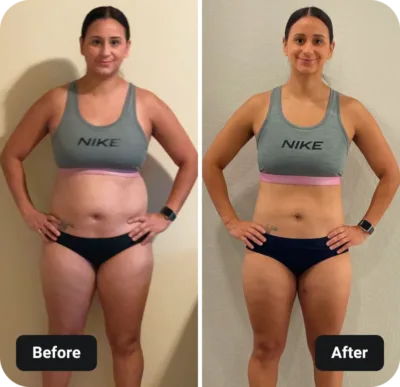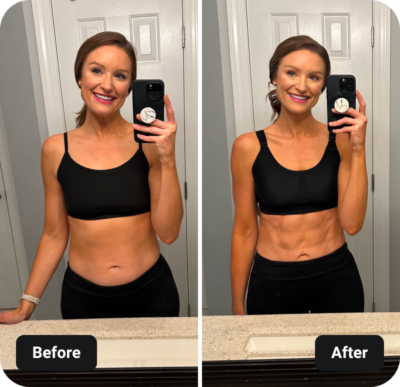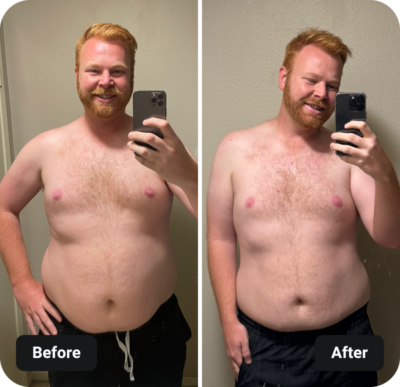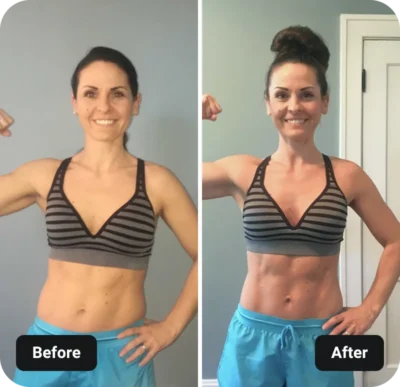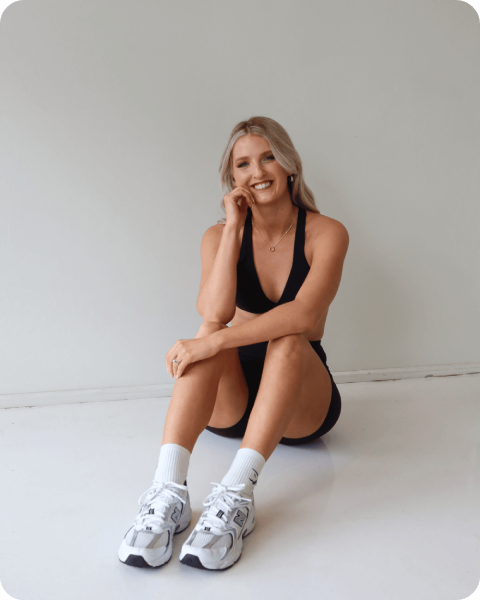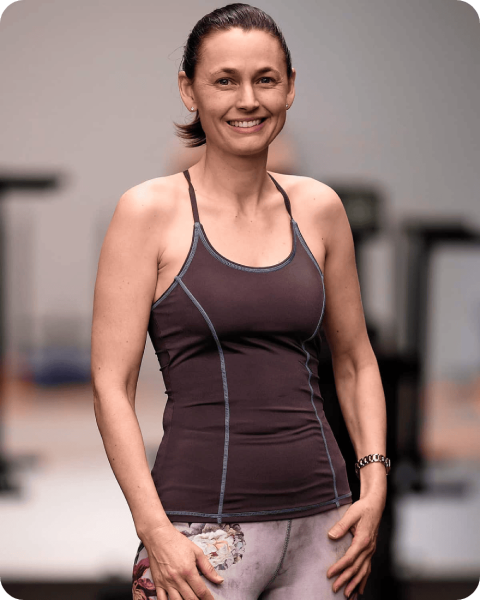42 DAY RESET
#1 PT sessions Melbourne
We come to you, or visit our gyms. Shed 4kg in 42 days, or we’ll train you for free. Get the best PT sessions Melbourne.
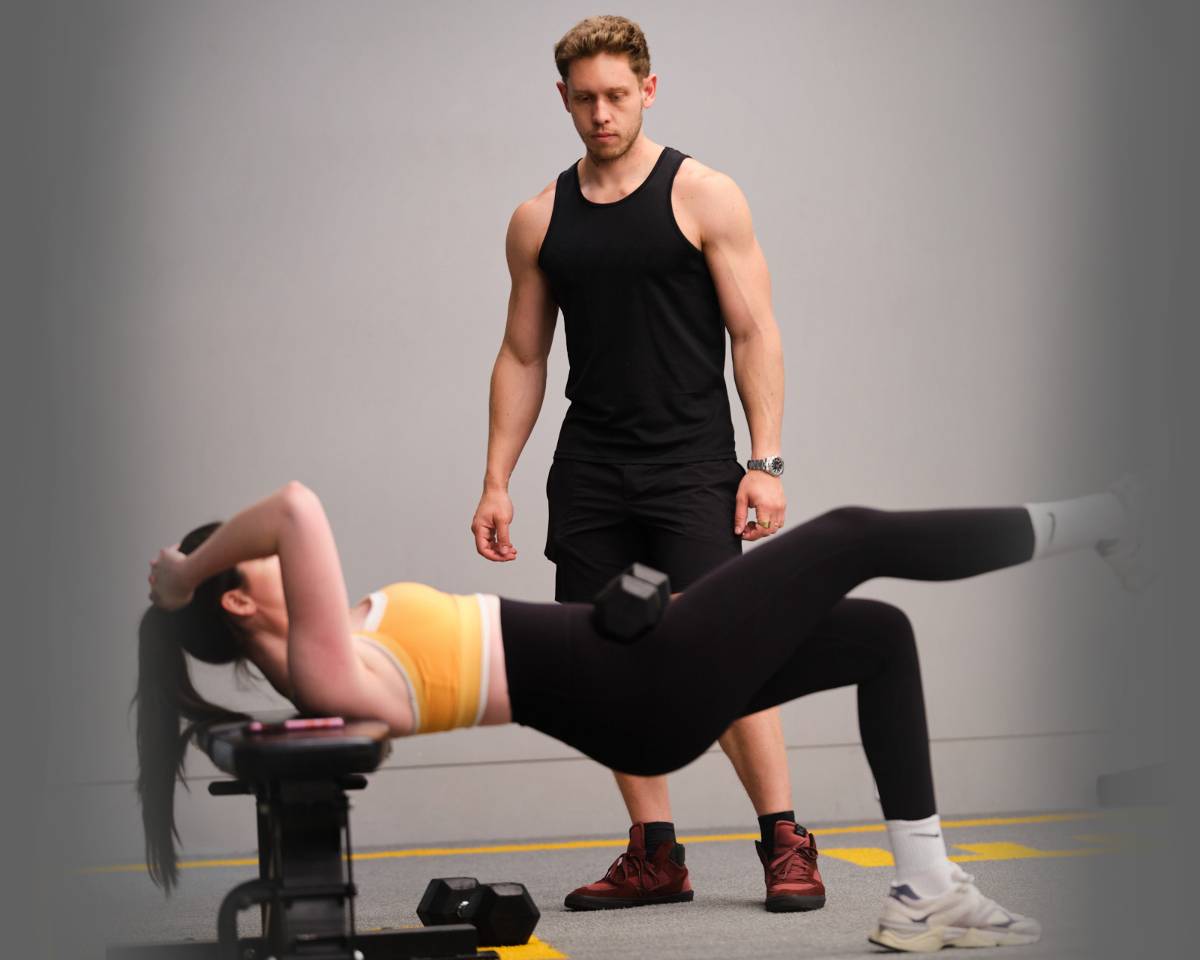
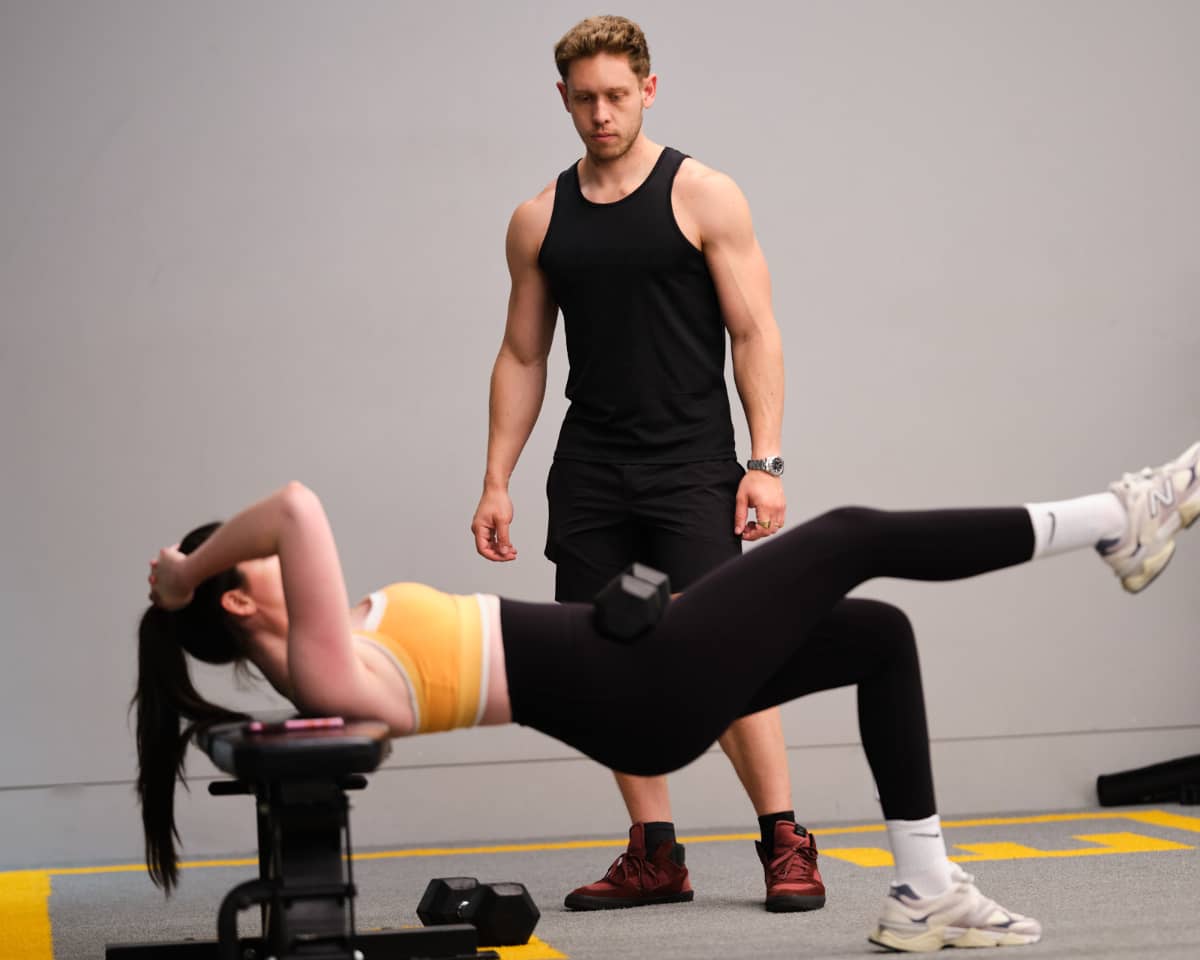

Incinerate fat, build strength & confidence
Straightforward moves burn and define every muscle group with unique workouts each week. They torch fat and maximize strength improvement.
Stick to our no-nonsense approach for the next 42 days, and you’ll see serious results—and still have time to live your life.

9 years of results
Meet the team
All the motivation you need. The best pt sessions Melbourne. They’re super friendly too!
MAKE YOURSELF A PRIORITY
Your fast track to a lean, powerful body
Sculpt a strong physique with Ninja Warrior Armstrong’s proven 42 Day Reset. 45 minute sessions packed with lifting, boxing & fat burning workouts. You’ll finish every session with a core-defining ab routine – AND IT WORKS!

Day 1-28: Strengthen & tone
Total-body strength. Personal training that’ll fire up your metabolism. It will define your, arms, glutes, thighs, and core. Get ready for results, fast.

Day 29-42: Metabolic sweat
Boost energy and maximize fat loss. High-intensity workouts. Quick, all-out effort and short rest periods.

Boxing ignite
Boxing that delivers a maximum cardio burn by combining technique, repetition, and intensity for an incredible TOTAL-body workout.

Core circuit
Different moves, same cardio and core challenge to maximize fat-burn. Plus a sweaty AMRAP (as many rounds as possible) finisher.
20% off – for the next 15 clients only
| Package | Sessions/ Week | Price/ Session | Discount |
|---|---|---|---|
| Basic | 1 | $112 | 0% |
| Pro (most popular) | 2 | $95 | 15% |
| Premium | 3 | $90 | 20% |
YOU ALSO GET…
The Entire Proven 42 Day Reset Plan
Workout plan
Follow our workout plan in your own time to rev up your metabolism. Challenge your muscles to burn through the fat.
Eating plan (valued at $100)
Feel healthy, energized, and confident in your pink dress (or suit). It’s everything you need to know to make diet easy, sustainable, and effective.
Motivation
We’ll keep you on track with our accountability system. You’ll feel motivated, energized, and consistent every week.
Mobile or gym
We’ll come to you with equipment. Or you can visit one of our 6 private gyms. All across Melbourne. Feel stress melt away, quick.
THE METHOD
Why the 42 Day Reset works
The secret is simple—Muscle Confusion. The 42 Day Reset obliterates the plateau effect by constantly introducing new moves and new routines so your muscles never adapt. As your body changes, the 3-phase program changes with you. It’s 42 days and pure intensity, and the results will shock you.


Lean body guarantee

This little puppy guarantees you’ll lose 4kg of body fat in 42 days. Or we’ll train you for free until you do. Just follow the workout and nutrition plan each day.
PT Sessions Melbourne
Personal training sessions across Melbourne offer a customized approach to achieving fitness goals through expert guidance. Our mobile service brings professional PT sessions directly to your preferred location while our five private studios provide dedicated training environments.
Why Choose Fitness Image For Your Personal Training
We bring flexibility to your fitness journey with our dual-service approach:
- Mobile Training Service: Our trainers travel to your location with all necessary equipment for home workouts park sessions or apartment gym training
- Private Studio Access: Train at any of our 5 dedicated facilities across Melbourne including South Melbourne, Port Melbourne, Hampton and Coburg
- Convenience-First Approach: Exercise at your chosen time in your preferred environment without travel hassles
- Equipment-Ready Sessions: Access professional-grade fitness equipment whether at our studios or through our mobile service
- Location Coverage: Service extending across Melbourne’s inner suburbs ensuring accessibility for more clients
- Focused Training Environment: Private sessions that eliminate gym crowd distractions maximising workout effectiveness
Our approach centres on delivering result-driven sessions customized to individual goals whether it’s weight management energy improvement or strength development. Each session incorporates proven techniques that create sustainable fitness outcomes rather than temporary fixes.
Expert Personal Trainers at Your Service
Our dedicated team of personal trainers combines extensive fitness knowledge with practical expertise to deliver exceptional PT sessions across Melbourne.
Certified and Experienced Training Team
Each member of our training team holds recognised fitness certifications with specialised expertise in diverse training methodologies. We maintain rigorous standards through continuous education to stay current with the latest fitness techniques. Our trainers deliver mobile personal training services to locations across Melbourne including South Melbourne, Port Melbourne, Hampton, Coburg. With expertise in both indoor studio environments and outdoor settings our trainers adapt sessions to maximise results in any training space.
Personalised Attention for Every Client
We tailor every PT session to match individual fitness levels goals and preferences. Our approach includes comprehensive assessments to understand exact needs whether training at one of our five private studios or through our mobile service. We bring premium equipment directly to clients creating focused one-on-one training environments that eliminate distractions. This personalised structure ensures each session delivers targeted results through undivided attention and real-time technique adjustments.
Our Personal Training Process
Our systematic approach to personal training combines thorough assessment, customized programming and comprehensive support to maximise your results. Here’s how we transform your fitness journey into measurable achievements.
Initial Fitness Assessment and Goal Setting
We start with a detailed 45-minute fitness assessment to establish your baseline metrics. Our evaluation includes body composition analysis, movement screening and cardiovascular fitness testing. During this session, we identify your current fitness level, discuss your lifestyle factors and map out exact, measurable goals. We document key measurements including body fat percentage, muscle mass, resting heart rate and mobility ranges to track your progress effectively.
Customised Workout Programmes
Based on your assessment results, we design a personalised 12-week training service that aligns with your goals and schedule. Each workout integrates proven exercise techniques, proper progression patterns and optimal rest periods. Our service adapt to your progress, incorporating varied training methods such as strength training, HIIT sessions or mobility work. We modify exercises in real-time during sessions, ensuring you’re consistently challenged while maintaining proper form.
Nutritional Guidance and Support
Our nutrition support complements your training with practical, sustainable eating strategies. We provide a personalised meal framework based on your daily routine, food preferences and energy requirements. Through our mobile app, you’ll receive weekly meal suggestions, grocery shopping guides and recipe ideas. We track your nutrition adherence through regular check-ins, adjusting recommendations based on your progress and energy levels. Our approach focuses on creating lasting habits rather than restrictive diets.
What Makes Our PT Sessions Different
At Fitness Image, our PT sessions stand out through our dedication to delivering personalised fitness experiences that transform lives. We’ve crafted our training approach to focus on three key aspects that ensure exceptional results for our clients.
One-on-One Focused Training
Our exclusive one-on-one training approach creates an environment where clients receive 100% undivided attention throughout their sessions. Each workout is monitored with precision, enabling real-time form corrections & technique adjustments that maximise exercise effectiveness. We maintain a strict policy of zero distractions during sessions, keeping mobile phones aside & focusing solely on achieving optimal performance. This concentrated approach allows us to track every rep, monitor breathing patterns & fine-tune movements for maximum benefit.
Flexible Scheduling Options
We understand the demands of busy Melbourne lifestyles, which is why we’ve implemented a flexible booking system that adapts to our clients’ schedules. Our PT sessions start as early as 5 AM & extend into the evening until 9 PM, offering 30-minute, 45-minute & 60-minute slots. Clients can book sessions up to 4 weeks in advance through our user-friendly mobile app, with the option to reschedule up to 12 hours before their appointment. We accommodate both regular weekly bookings & casual training arrangements.
State-of-the-Art Training Facilities
Our five private training studios across Melbourne feature premium fitness equipment from leading brands like Technogym & Life Fitness. Each facility includes dedicated zones for strength training, functional movement & cardio workouts. We maintain a controlled climate environment year-round & provide towel service, filtered water stations & post-workout refresh areas. Our facilities are equipped with performance tracking technology, enabling precise monitoring of workout metrics & progress tracking through our integrated fitness app.
Tailored Training Programmes
Our personalised training service adapts to individual fitness requirements through comprehensive assessment data and ongoing progress tracking. Each service integrates exact exercises, intensities, and progression paths aligned with clients’ unique goals.
Weight Loss and Body Transformation
Our weight loss and body transformation programmes combine targeted resistance training with metabolic conditioning workouts for optimal fat loss results. We structure each session to maximise caloric burn through compound exercises, high-intensity intervals, and progressive overload techniques. Our trainers monitor body composition changes using advanced measurement tools, adjusting workout variables like volume, intensity, and rest periods to maintain consistent progress. The programmes include bi-weekly check-ins, progress photos, and customised nutrition strategies to support sustainable weight management.
Strength and Conditioning
Our strength and conditioning programmes focus on building functional strength, power, and athletic performance through systematic progression. We carry out periodised training cycles that incorporate compound lifts, plyometrics, and sport-exact drills customized to individual capabilities. Each service features structured progression in key lifts such as squats, deadlifts, and presses while maintaining proper form. Our trainers track strength gains through detailed performance metrics, adjusting loading patterns and exercise selection to prevent plateaus and optimise muscle development.
Rehabilitation and Recovery
Our rehabilitation programmes support clients recovering from injuries or managing chronic conditions through targeted exercise prescription. We collaborate with healthcare providers to design safe, progressive workouts that rebuild strength and mobility. Each session incorporates corrective exercises, mobility work, and graduated resistance training to restore function and prevent future injuries. Our trainers utilise exact movement assessments to track recovery progress, modifying exercises based on pain levels and movement quality to ensure optimal healing and return to activity.
Our Proven Training Methods
Our training methods combine evidence-based exercise science with practical experience to deliver consistent results. We’ve refined these techniques through 15+ years of successful client transformations across Melbourne.
Science-Based Exercise Techniques
Our PT sessions incorporate scientifically validated training protocols that maximize efficiency and results. We use progressive overload principles structured in 4-week training blocks targeting exact adaptations in strength endurance flexibility or power. Each session integrates compound movements with targeted isolation exercises optimizing muscle recruitment patterns. Our methodologies include German Volume Training High-Intensity Interval Training (HIIT) and Peripheral Heart Action techniques proven to enhance fat loss muscle growth and cardiovascular fitness. We customize exercise selection based on biomechanical assessments ensuring optimal movement patterns for each client’s body structure.
Progress Tracking and Adjustments
We carry out comprehensive tracking systems using advanced measurement tools and performance metrics. Weekly body composition analysis InBody scans and strength assessments provide detailed insights into progress trends. Our digital tracking platform monitors 8 key performance indicators including lean muscle mass cardiovascular endurance and mobility scores. We analyze this data to make real-time programming adjustments ensuring continuous progression. Clients receive monthly progress reports detailing achievements and highlighting areas for improvement with exact action steps for enhanced results.
Continuous Support and Motivation
Our support extends beyond physical training through integrated accountability systems. We provide 24/7 messaging access to trainers regular check-in calls and bi-weekly progress reviews. Our mobile app enables clients to track workouts log nutrition and communicate directly with their trainer. We celebrate milestones through our recognition program acknowledging achievements like strength improvements body composition changes and fitness level advancements. Each client receives personalized motivation strategies based on their psychological profile and goal-setting preferences improving long-term adherence to their fitness journey.
Real Results from Real Clients
Our PT sessions deliver groundbreaking results through structured training programmes backed by measurable data. Over 500 clients have achieved their fitness goals through our personalised approach in Melbourne.
Success Stories and Transformations
Our client success metrics showcase remarkable transformations across diverse fitness goals. Members following our 12-week service report an average of 8kg fat loss while maintaining lean muscle mass. Notable achievements include Sarah M., who improved her deadlift from 40kg to 85kg in 6 months, and Michael T., who reversed pre-diabetes symptoms through consistent training. Our strength-focused clients experience 30-40% increases in major lifts within their first 3 months. The data from our body composition tracking reveals that 85% of clients achieve their initial fitness targets within the projected timeframe.
Client Testimonials
“After 6 months of PT sessions at Fitness Image, I’ve dropped 4 dress sizes and gained confidence I never knew I had.” – Emma R., Melbourne CBD
“The mobile training option fits perfectly with my schedule. I’ve lost 12kg and maintained it for over a year now.” – James P., South Yarra
“Their expertise in post-injury rehabilitation got me back to playing sports in half the expected recovery time.” – David K., Richmond
“The personalised approach makes all the difference. I’ve achieved more in 3 months than I did in 2 years at regular gyms.” – Lisa M., Toorak
These verified testimonials reflect the consistent results our clients achieve through dedicated PT sessions focused on their exact goals.
Book Your First Session Today
Starting your fitness journey with personalised PT sessions is a groundbreaking decision that delivers measurable results. Our streamlined booking process makes it easy to begin your path to better health and fitness.
Getting Started is Simple
Booking your first PT session. First-time clients receive a comprehensive fitness assessment during their initial consultation measuring key metrics like body composition cardiovascular fitness strength levels.
Special Offers for New Clients
We’re offering new clients a free 45 min session. This introductory session includes:
- Complete fitness assessment with body composition analysis
- Custom workout program design
- Mobile app access for progress tracking
- Nutrition guidance consultation
- Flexible scheduling across all studio locations
Additional signup bonuses include:
- Free training guide with exercise tips workout plans
*Offer valid for first-time clients only. Terms conditions apply.
160 Google reviews
Common questions
You might looking for a personal trainer because you want results. Whether that’s weight loss, to feel more energetic, or build strength.
And nothing else has worked for you before. And if your last program worked, it only worked for a short time. With classes, you still have to spend time, money, and effort.
But they’re not motivating. And they don’t burn up to a kilo of fat per week. At all. And all the diets out there like keto and intermittent fasting. They’ll work for a short time, because they’re restrictive diets.
But in the end they are just unsustainable and ineffective for 99% of people. We’ve got a new and unique approach. Our 42 Day Reset is one of the best combinations of training and nutrition you’ve ever seen.
It’s guaranteed to work for 100% of people. And any money, time, and effort you invest in yourself. You’ll see back, 10 fold. Because you’ll actually see and feel the changes you want. In your body, mind, and life.
We’ve got 6 private studios, all across Melbourne.
We also have trainers all over Melbourne, so you’ll be able to do the 42 Day Reset no matter where you are.
Mobile personal training is just as effective as studio sessions, and it saves you time.
Fitness Image and our trainers give you great results, no matter where you start or what your goals are.
We offer custom strength training for a full-body workout. This program helps you build lean muscle and reduce body fat, revealing a stronger, more defined body.
With different lifting techniques, you’ll change how you look and feel.
Lift heavy, push yourself, and target every muscle group to reach your best physical and mental strength.
Our trainers love helping people succeed, making lifting fun and rewarding.
Just getting started and doing a first session is the best way.
That way, you can use the service and get better recommendations from your trainer about what might be best for you.
The plan is for you if the results are what you’re looking for.
I’ve designed the 42 Day Reset to be the most effective way to improve and reach your goals.
It’s a combination of proven personal training methods and science based nutrition.
It’s a plan to help you get your best results in your first six weeks of training.

